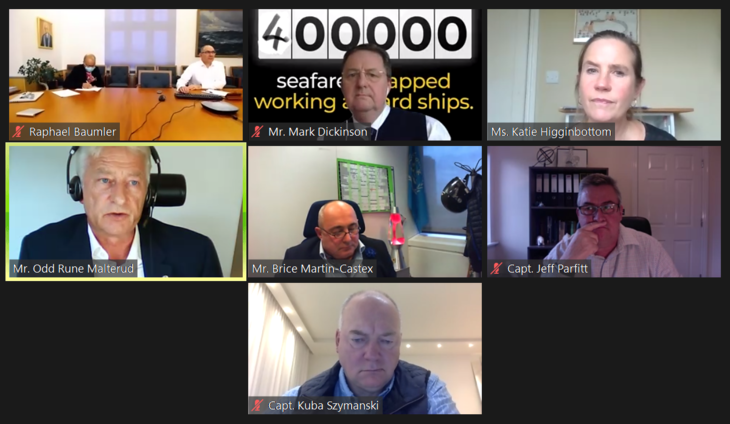A Culture of Adjustment

Evaluating the implementation of the current maritime regulatory framework on rest and work hours.
Read the press release here
The report you can download here
Read about the event here
Access the recordings of the webinar on WMUs YouTube channel here
Read the QA-session here
“The title of the report is straight to the point - No other professional workers has so many regulations to follow - without ownership, and this report shows exactly what we have observed and highlight as a safety issue for many years – so no surprise - but a needed confirmation we need in our future work”
Key word as;
- ISM code
- Safety Culture
- Implementation
- Practice
- Watch system
In connection with the flag state responsibility, who is too often base on to normalizations on deviance and exemptions, lack of inspections recourses knowledge and common routines.
The crews fear of sanctions, violations, loosing bonus, overtime and even get fired, make the perfect trap.
Or as it stays in the report:
- Seafarers seem unable to prioritise their allegiance: ship interests or regulations.
- They are trapped in cognitive dissonance, where deviance is normalised.
About the short-term and long-term impacts of fatigue on seafarers?
- Short term; Safety Risk - Long term: more Safety Risk
- all ships and operations are individual but the norm of manning the ships owners make - don’t care!
- A sailor works and lives on board and the minimum manning practical give them watch duties 24/7 - this has a negative effect on the seafarers condition and health, his colleagues must keep an eye on it , take over more responsibility and eventually everyone is exhausted and sailing around like a ticking bomb.
- Seafaring is not for everyone, but it is quite possible to think safety before money - manning a ship with the right competence in a 3-watch system and make sure they can get off - when necessary!
Physical and mental pressure and fatigue and can pose serious risks to the safety of lives and ships at sea and can threat the marine and coastal environment, as we experienced on the Wakashio accident.
This shows that all stakeholders have a crucial role not only regarding maritime safety and environmental protection but also on social aspects.
Read the full ITF statement on this in the ITF report “Beyond the limit”, published by the International Transport Workers’ Federation (September 2020) on how Covid-19 corner-cutting places too much risk in the international shipping system.
Whatever direction you look - this is about manning policy the ITF manning policy is based on the text in ISM code.
A common Safety Culture where Implementation and Practice of ISM code ensure
- safety and security of the ship, safe navigation and operations at sea;
- safe operations in port;
- prevention of human injury or loss of life;
- the avoidance of damage to the marine environment and to property; and
- to ensure the welfare and health of seafarers through the avoidance of fatigue.
